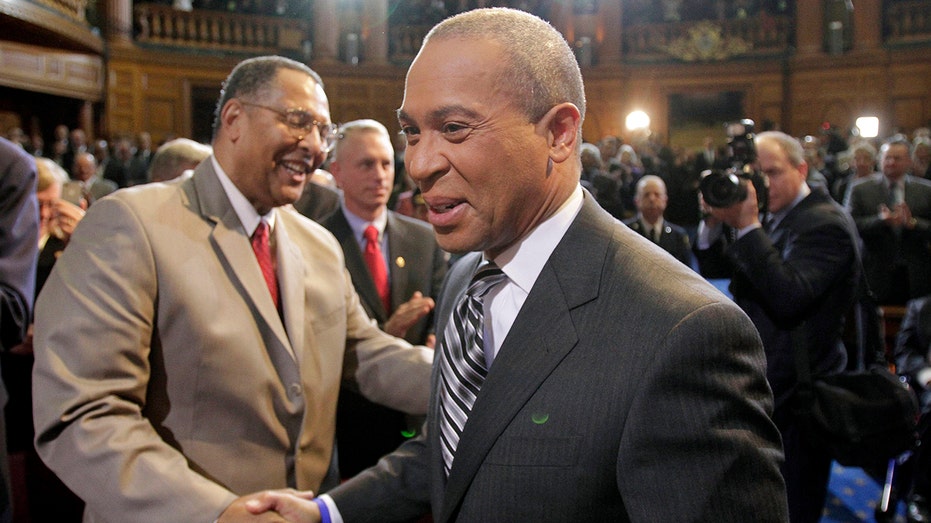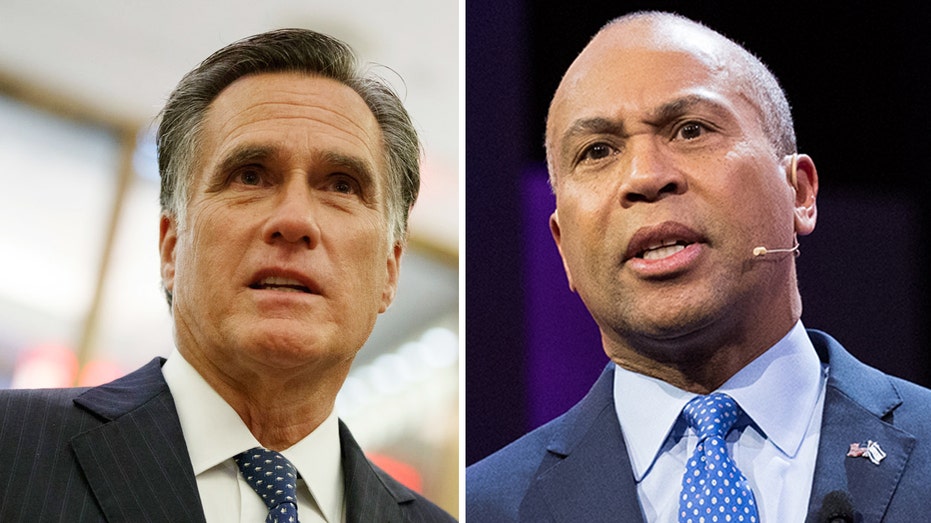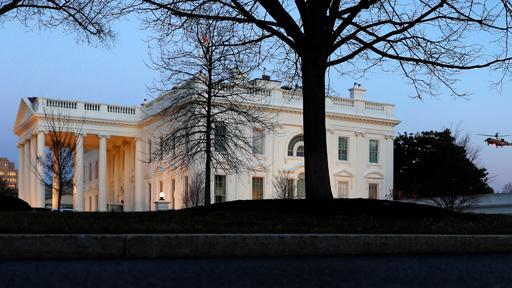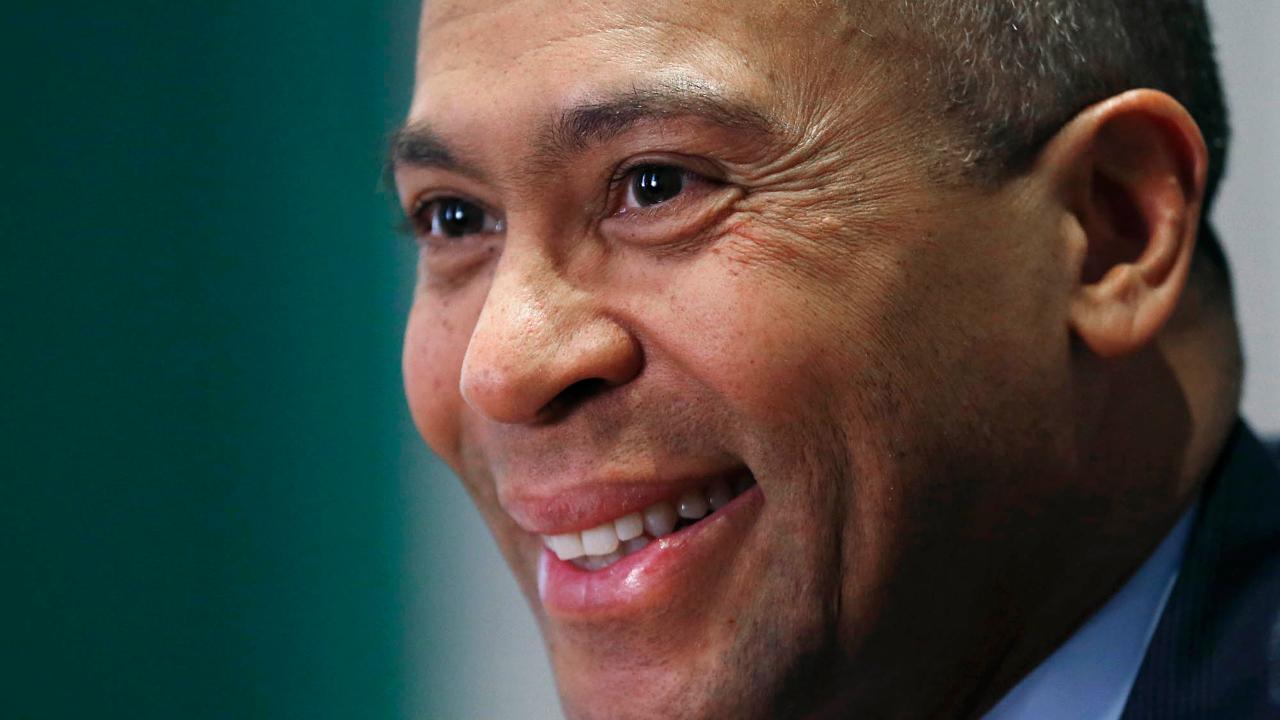Deval Patrick's history with the subprime mortgage crisis
Patrick was on the board of a company whose subsidiary was a major subprime mortgage lender.
Former Massachusetts Gov. Deval Patrick is making a late entry into the Democratic presidential race, and he'll be drawing from a wide-ranging resume that includes time at Bain Capital, Coca-Cola and ACC Capital Holdings, the parent company of a subprime mortgage lender.
Patrick, 63, made history as the first black governor of Massachusetts. But it's his experience before and after the governorship that anti-Wall Street candidates like Sen. Elizabeth Warren are likely to go after.
That's especially true when it comes to his role working for the biggest U.S. lender in the subprime market that contributed to the 2008 recession.
Patrick joined the five-person board of ACC Capital Holdings in 2004 to help clean up a $325 million mess. Its subsidiary Ameriquest Mortgage Co. was accused of predatory lending resulting in legal action by 49 states, The Boston Globe reported in 2006, while Patrick was running for governor.
The position paid $360,000 a year, and Patrick resigned in July 2006 after major criticism from his Democratic primary rival, Thomas Reilly.
BAIN CAPITAL YANKS LATECOMER DEVAL PATRICK FROM WEBSITE AFTER ANNOUNCEMENT
Patrick painted his time at ACC Capital Holdings as an opportunity to help the company change despite "horrific" stories about Ameriquest taking advantage of poor people who were often seniors or minorities, he told the Globe.
"The founder [Roland Arnall], who was still the chairman, called and said he needed some help," Patrick told the outlet. "He said: 'We've started to make some changes and we're under investigation' — I think at that point it was by maybe a dozen attorneys general — 'and we need to settle those and make these changes, and that's where you come in. The investigation is a platform for change.'"
The company cut about 3,800 U.S. jobs in the process, the Globe reported.
Here are some other experiences Patrick has cultivated that could aid — or harm — Patrick on the campaign trail.
Early years and election success
Patrick's success story begins in his birthplace Chicago, where he was raised by a single mother. He moved to Massachusetts at age 14 when he was given a scholarship to attend Milton Academy in the eastern part of the state, according to his Obama Foundation bio.
From there, it was Harvard University and then Harvard Law School for Patrick. He became a partner at Boston law firm Hill & Barlow at 34 and led high-profile cases including Desiree Washington's lawsuit against her convicted rapist Mike Tyson.

Newly re-elected Massachusetts. Gov. Deval Patrick, right, is greeted by Chief Justice of the Massachusetts Supreme Court Roderick Ireland, left, as Patrick arrives in the House Chamber at the Statehouse, in Boston, moments before being administered
By the time he was 40, Patrick had a couple of years under his belt as the nation's top civil rights advocate after former President Bill Clinton appointed him assistant attorney general for civil rights in 1994.
The Democrat won his 2006 bid for Massachusetts governor and succeeded Republican Mitt Romney, who departed to run for president. Patrick's and Romney's paths would cross again years later in 2015, when Patrick joined Bain Capital, the private investment firm Romney co-founded.
Bain Capital
Obama's 2012 campaign hit Romney hard for his tenure at Bain, accusing him of outsourcing American jobs and thinking his business experience made him qualified to be president.
"When you're president, as opposed to the head of a private equity firm, your job is not simply to maximize profits. Your job is to figure out how everybody in the country has a fair shot," Obama said in 2012.

Deval Patrick (R) replaced Mitt Romney (L) as Massachusetts governor in 2007.
Patrick has faced tough questions about his past before. In 2006, he told the Globe his executive positions at corporations like Texaco and Coca-Cola did not mean he had abandoned his background as a civil rights advocate.
GET FOX BUSINESS ON THE GO BY CLICKING HERE
"I've fixed hard problems of all kinds, civil rights and business problems," Patrick said. "It's the stuff I like to do, and I'm good at it, as a matter of fact ... and I never left my conscience at the door."
"It makes some people uncomfortable because they think I belong in a certain box," he said. "In the view of some people, you can only believe in civil rights if you work as a civil rights lawyer. I just don't buy that."
CLICK HERE TO READ MORE ON FOX BUSINESS
The Associated Press contributed to this report.





















